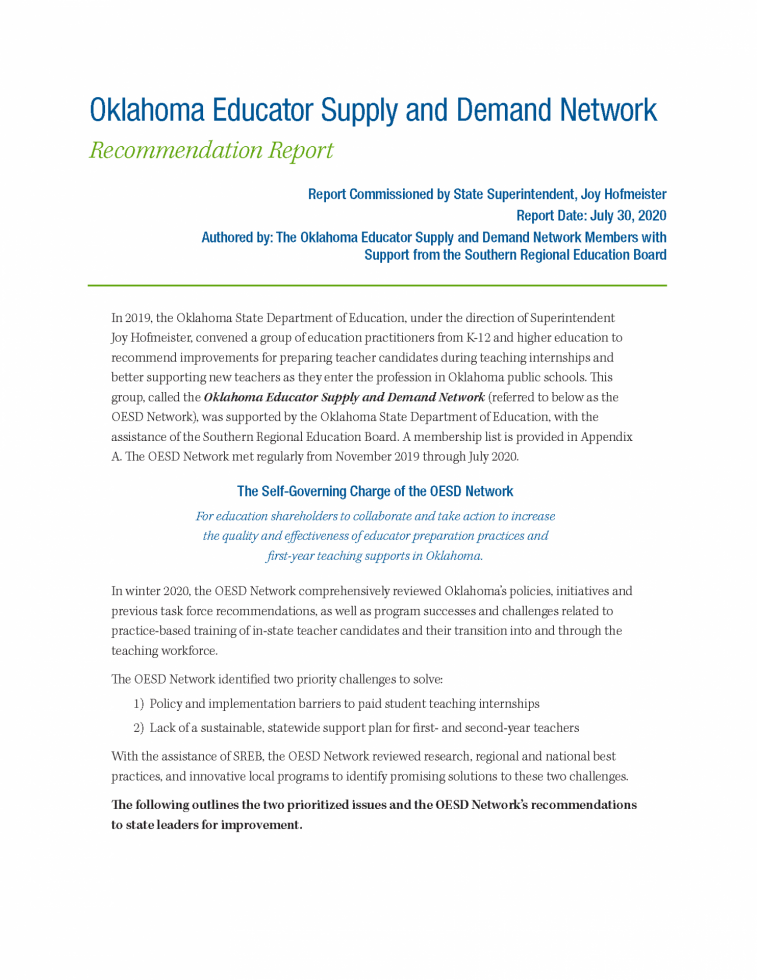How States Can Reduce College Debt for Future Teachers
 A major issue for my generation, the millennials, and for Gen Z as well is deep, suffocating student debt. For those who want to enter teaching, a career that is not compensated handsomely, this debt can be even more daunting.
A major issue for my generation, the millennials, and for Gen Z as well is deep, suffocating student debt. For those who want to enter teaching, a career that is not compensated handsomely, this debt can be even more daunting.
Many teacher candidates work full- or part-time jobs in addition to attending classes. When they enter their student teaching period, whether for a semester or a year, these candidates are expected to give over their time fully to student teaching, which makes working nearly impossible. Taking out student loans to cover expenses is an avenue many people are not willing to traverse, which means traditional educator-preparation programs are no longer an option.
How can states lessen this burden for student-teachers?
For the past 10 months a team at SREB helped Superintendent Joy Hofmeister form and support a roundtable of educators called the Oklahoma Educator Supply and Demand Network. The Network’s charge was to help find innovative solutions to improve educator preparation and support for early career teachers. The OESD Network is made up of education stakeholders from across the state, including superintendents, educator preparation program representatives and state education agency staffers.
One of the biggest challenges identified by the Network members in preparing new teachers is reducing the financial burdens of student-teacher interns. Current state law allows teacher interns to be paid, but only for work beyond the state’s minimum internship requirement. And many school districts cannot afford to pay interns at all. Differences in Oklahoma districts’ budgets add to the inequity in compensating student-teacher interns in less affluent areas.
Establishing a fund to equitably pay stipends to student teachers across the state could open traditional education preparation programs to more candidates
In their recommendations, the OESD Network members suggest some possible changes to statutory language to pay interns for the entire internship period, as well as establish a Statewide Teacher Internship Fund to provide teacher internship stipends equitably across the state.
Paying student-teacher interns is not widespread in the U.S., and if the Network’s suggestion is enacted, Oklahoma may be the first in the nation to provide payment for all traditional educator preparation student teacher interns.
Oklahoma’s willingness to explore establishing a fund to equitably pay stipends to student teachers across the state could open traditional education preparation programs to more candidates. And the equitable nature of the fund would also help “Grow Your Own” programs and hard-to-staff districts across the state.
The dedication of the OESD Network members to increasing equity for both student-teacher interns and public-school systems, and to strengthening the quality and supply of teachers, is impressive. This recommendation could help Oklahoma — and other states — attain these goals while relieving some of the money stress that traditional educator preparation students feel.


